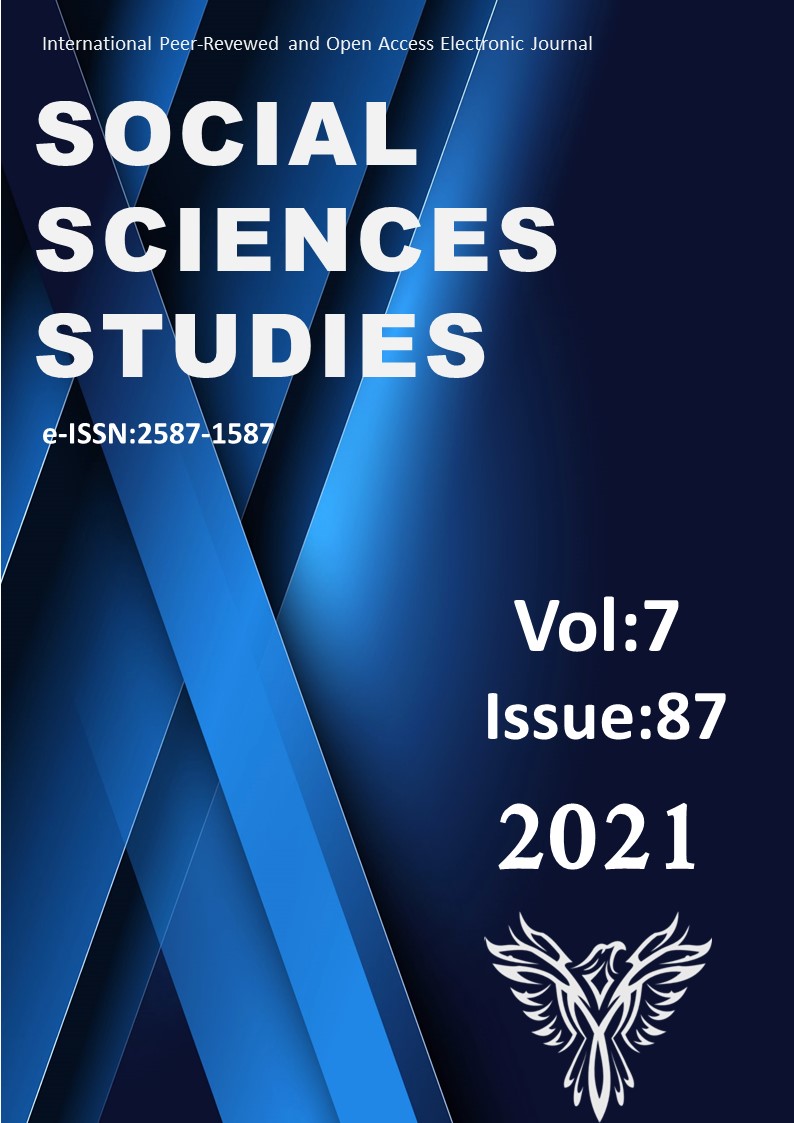Author :
Abstract
Geleneksel toplum yapısı değişimi ve dönüşümü reddederek topluma yerleşen alışkanlıkların ve kültürel özelliklerin aynen ve tekrar inşası üzerine kurulmuştur. Dini kalıplar toplum kurallarına hakimdir ve bireyselci bir yapıdan söz edilemez. Aydınlanma felsefesi ile fikri dayanağını bularak Batı toplumlarında ortaya çıkan modernizm, geleneksel olan her şeyi ötekileştirerek bireyci, seküler ve materyalist bir toplumsal hayat dizayn etmeye çalışmaktadır. Sanayi Devrimi ve ardından gelen teknolojik gelişmeler kapitalizmi doğurmuş, serbest ekonomik girişim anlayışı, bireysellik ve maddeciliğin giderek önem kazanması tüm toplumları ve tüketim anlayışını derinden etkilemiştir. Modernizmin ortaya çıkışıyla birlikte insanoğlu üretimden çok tüketime yönelmeye başlamıştır. Bunu takip eden dönemde küreselleşmenin hız kazanmasıyla birlikte bilinen modernizm pratiklerinden uzaklaşılarak yeni bir anlayışın doğduğu Post-modernizm döneminin siyasi, sosyal ve ekonomik anlayışı yerleşmeye başlamıştır. Artık tüketim anlayışı bilinen zorunlu ihtiyaçların da ötesine geçerek hayat tarzı anlamına gelmektedir. Postmodern dönemde tüm tüketim kalıplarını da içine alan geniş çaplı bir anlayışa geçilmiştir. Çoğulculuğu ve farklılıkları önceleyen Post-modernizm döneminde, yığın üretim ve buna paralel farklı tüketim kalıplarının geliştiği bir mekanizma yerleşmeye başlamıştır. Modern ve post-modern dönemde moda tüketimi ve kimlik bu araştırmanın konusunu oluşturmaktadır. Literatüre dayalı olarak yapılan bu araştırmada öncelikle modern dönemde moda, tüketim ve kimlik anlayışı birlikte ortaya koyulmaya çalışılmıştır. Ardından post-modern dönemde moda ve tüketim kalıpları içerisinde sosyal anlamda var olmaya çalışan bireyin kimlik arayışı irdelenerek verilmiştir.
Keywords
Abstract
The traditional society structure is built on the same and re-construction of the habits and cultural characteristics that have settled in the society through rejecting the change and transformation. Religious patterns dominate the society rules so it cannot be mentioned about an individualistic structure. Modernism, which emerged in Western societies through finding its intellectual basis with the Enlightenment Philosophy, tries to design an individualist, secular and materialist social life through marginalizing everything traditional. The Industrial Revolution and following technological developments caused emergency of capitalism, and the understanding of free economic enterprise, the increasing importance of individualism and materialism affected all societies and the understanding of consumption deeply. Upon emergency of modernism, human beings began to tend towards consumption rather than production. In the following period, due to acceleration of globalization and moving away from known modernism practices; the political, social and economic understanding of the Post-modernism period, in which a new understanding was born began to settle. Now, the understanding of consumption goes beyond the known obligatory needs and becomes a lifestyle. A wide-ranging understanding that includes all consumption patterns has been adopted in the post-modern period. In the period of Post-modernism, in which prioritized pluralism and differences, mass production and a mechanism in which different consumption patterns are developed in parallel began to settle. Fashion consumption and identity in the modern and postmodern era compose the subject of this research. First of all, the understanding of fashion, consumption and identity in the modern period was tried to be revealed together in this research based on the literature scanning. Then, the search for identity of the individual who tries to exist in the social sense within the fashion and consumption patterns in the post-modern period was provided in examining it.





